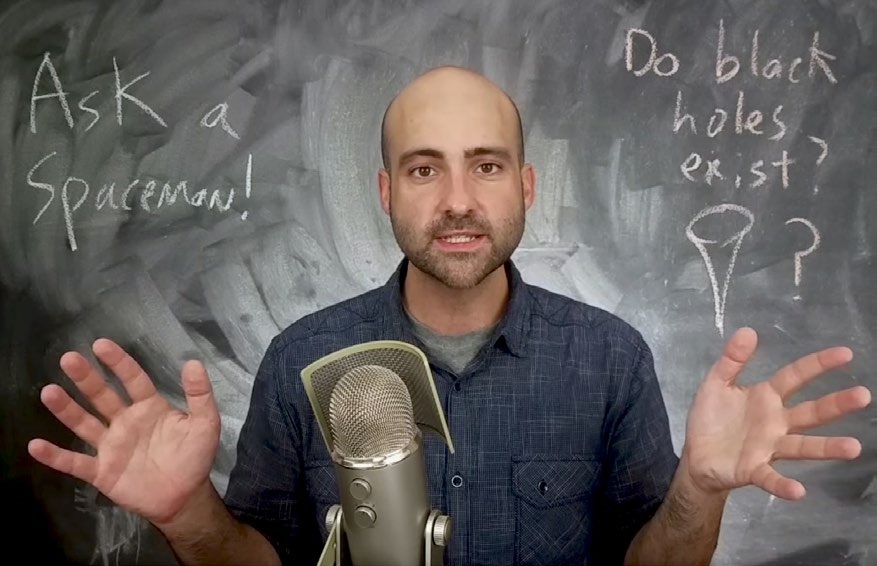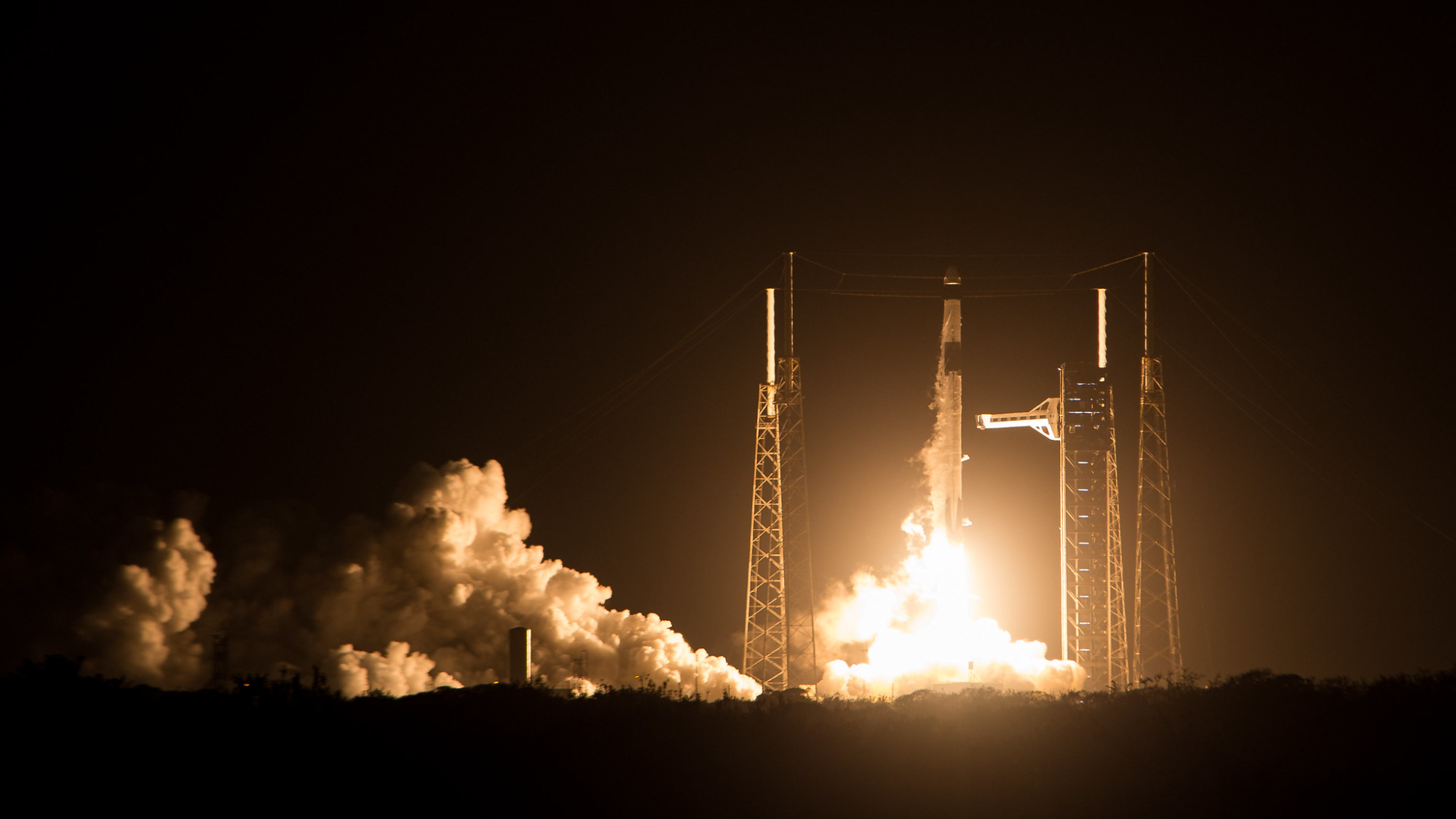'Ask a Spaceman' Travels Back in Time to Explore the Big Bang
Breaking space news, the latest updates on rocket launches, skywatching events and more!
You are now subscribed
Your newsletter sign-up was successful
Want to add more newsletters?

Delivered daily
Daily Newsletter
Breaking space news, the latest updates on rocket launches, skywatching events and more!

Once a month
Watch This Space
Sign up to our monthly entertainment newsletter to keep up with all our coverage of the latest sci-fi and space movies, tv shows, games and books.

Once a week
Night Sky This Week
Discover this week's must-see night sky events, moon phases, and stunning astrophotos. Sign up for our skywatching newsletter and explore the universe with us!

Twice a month
Strange New Words
Space.com's Sci-Fi Reader's Club. Read a sci-fi short story every month and join a virtual community of fellow science fiction fans!
Our baby universe is spotlighted in the latest episode of "Ask a Spaceman,"which airs on Facebook today (Aug. 22). In the show, astrophysicist and Space.com columnist Paul Sutter will explain how our universe formed and why you can't "see" the exact location where the explosion occurred.
Sutter's video series, which is produced in partnership with Space.com, began last week by introducing viewers to Pluto, a dwarf planet far out in our solar system that was visited by the New Horizons spacecraft back in 2015. Episode 2, part one of a two-parter, gets to the heart of where we came from — that is, how the universe began.
"The physics is extreme here, the science is extreme and your mind is going to be blown — perhaps in a big way," Sutter says in this week's episode, available here on Facebook Watch. One concept that even astrophysicists struggle to explain, he adds, is why the Big Bang didn't form in a particular spot, but rather everywhere.
"I think the problem here — not the problem, the misconception — is that when any documentary or TV show or whatever starts talking about the Big Bang, they have to show you something on the TV screen, right? Or in your little YouTube video, or whatever," Sutter says.
A typical animation of the Big Bang shows a little point of light that dramatically explodes, Sutter explains. Yet the universe didn't begin with an explosion in space; instead, it was an explosion of space itself, Sutter says in the episode. This means that all locations in the universe experienced the Big Bang.
Sutter urges viewers to "run the clock backwards" to better imagine the conditions of the Big Bang, some 13.8 billion years ago. Because the universe is expanding, if we run time backward, the universe shrinks and collapses into an object about the size of a peach, heated to a trillion degrees. Why the extreme temperature? You'll find out more in Episode 3.
"Like anything in science, you can make whatever ridiculous statement you want, but you have to back it up with the evidence, right?" Sutter adds. "That's the game we play in science. You must back up statements with actual statements and evidence."
Breaking space news, the latest updates on rocket launches, skywatching events and more!
"Ask a Spaceman" is a 12-episode series on Facebook Watch, with new episodes airing Wednesdays at 12 p.m. EDT (1600 GMT). You can "like" the series' Facebook Watch pageor check back later to see more. Sutter also responds to viewer questions in every episode.
Sutter is a cosmologist at The Ohio State University and chief scientist at Ohio's Center of Science and Industry, and he has been running the "Ask a Spaceman" podcast online for the past three years. If you're hungry for more space content from Sutter, you can catch up on all the past episodes here.
Follow us @Spacedotcom, Facebook and Google+. Original article on Space.com.

Elizabeth Howell (she/her), Ph.D., was a staff writer in the spaceflight channel between 2022 and 2024 specializing in Canadian space news. She was contributing writer for Space.com for 10 years from 2012 to 2024. Elizabeth's reporting includes multiple exclusives with the White House, leading world coverage about a lost-and-found space tomato on the International Space Station, witnessing five human spaceflight launches on two continents, flying parabolic, working inside a spacesuit, and participating in a simulated Mars mission. Her latest book, "Why Am I Taller?" (ECW Press, 2022) is co-written with astronaut Dave Williams.

